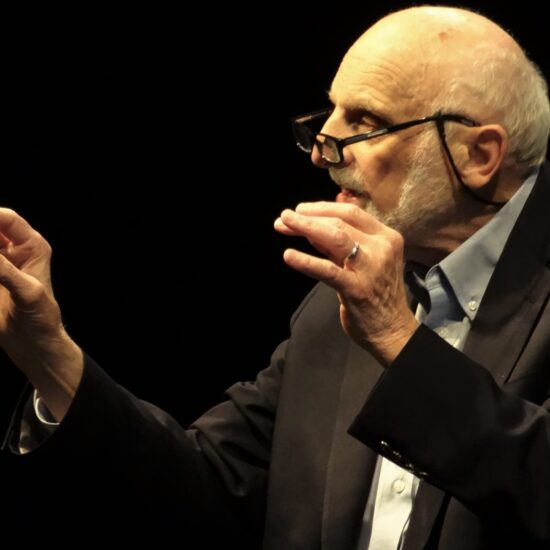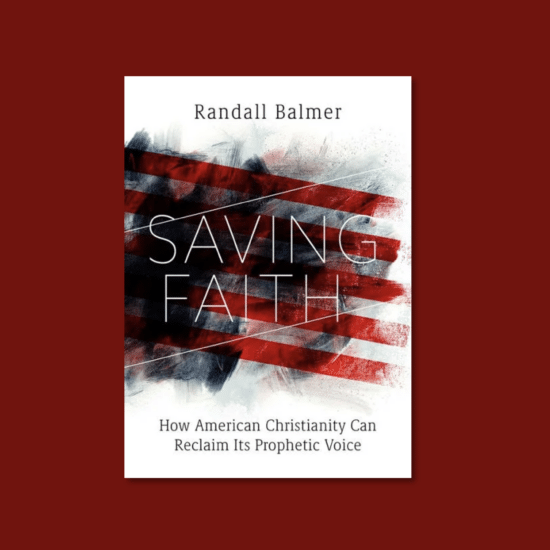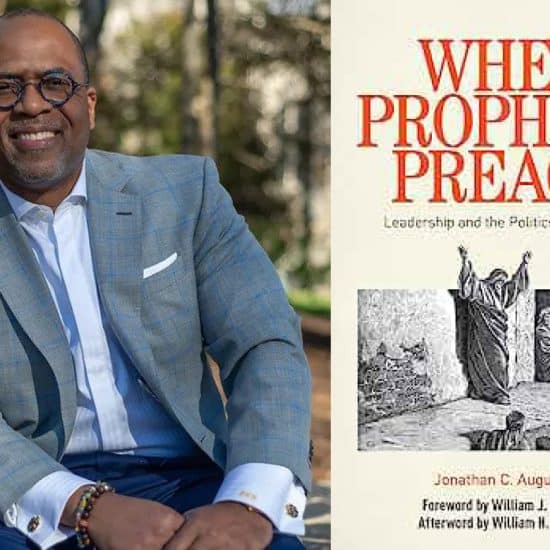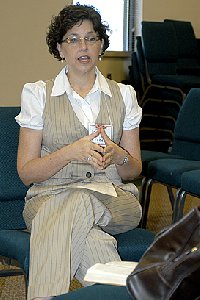
Kathy Pickett
|
LIBERTY — Kathy Pickett recalls being surprised in a class related to prophetic ministry when fellow pastors suggested they couldn’t think of any issues in their community that needed to be addressed.
As the class progressed, Pickett discovered that her colleagues weren’t living in perfect communities, but had a well-founded fear of challenging the congregation to something that might be considered controversial.
Pickett, pastor of congregational life at Holmeswood Baptist Church in Kansas City, joined Wallace Hartsfield Sr., pastor emeritus of Metropolitan Missionary Baptist Church in Kansas City, to lead a breakout session on nurturing prophetic imagination in preaching.
Hartsfield and Pickett believe prophetic speaking is a necessary part of a pastor’s ministry. “The church has to deal externally. It has to speak a word,” Hartsfield said. “It cannot sit there, knowing the pain that is in the community and not say a word about why.”
The prophet’s role is not to foretell as much as it is to “forth speak,” Hartsfield said. The prophet reminds people that the good they may be experiencing now — whether that be financial security or good health — is not eternal. “The prophet tends to face the present reality and declare an alternative reality,” he said.
He reminded the session’s participants that one does not choose to be a prophet, but that God places the burden upon persons. “A prophet would get out from under the burden if he could,” Hartsfield said. “It’s dismantling; it’s discouraging.”
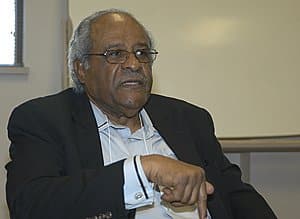
Wallace Hartsfield Sr.
|
He emphasized Jeremiah’s writing that “the word of the Lord came to me.” A prophet does not speak his or her own words, but the word of God, Hartsfield said.
Being a prophet requires tough love, painful love, he said. “If we are to declare the full word upon us, we open ourselves up for hurt.”
After the prophet speaks, the church then has the responsibility to respond in prophetic ministry, Pickett said. “Even the tough word is still good news.”
This type of ministry takes the time to get to know people and understand their hurts, she said. It moves from easy, dismissive answers to creative solutions that honor others.
“We must get outside our buildings and experience for ourselves the suffering of marginalized people locally and globally,” Pickett wrote on a handout to accompany the breakout session. “We must recognize the need for prophetic ministry that focuses on Jesus’ mission to share God’s love, mercy and justice to all people.”
Jennifer Harris is the news writer for Word&Way.


